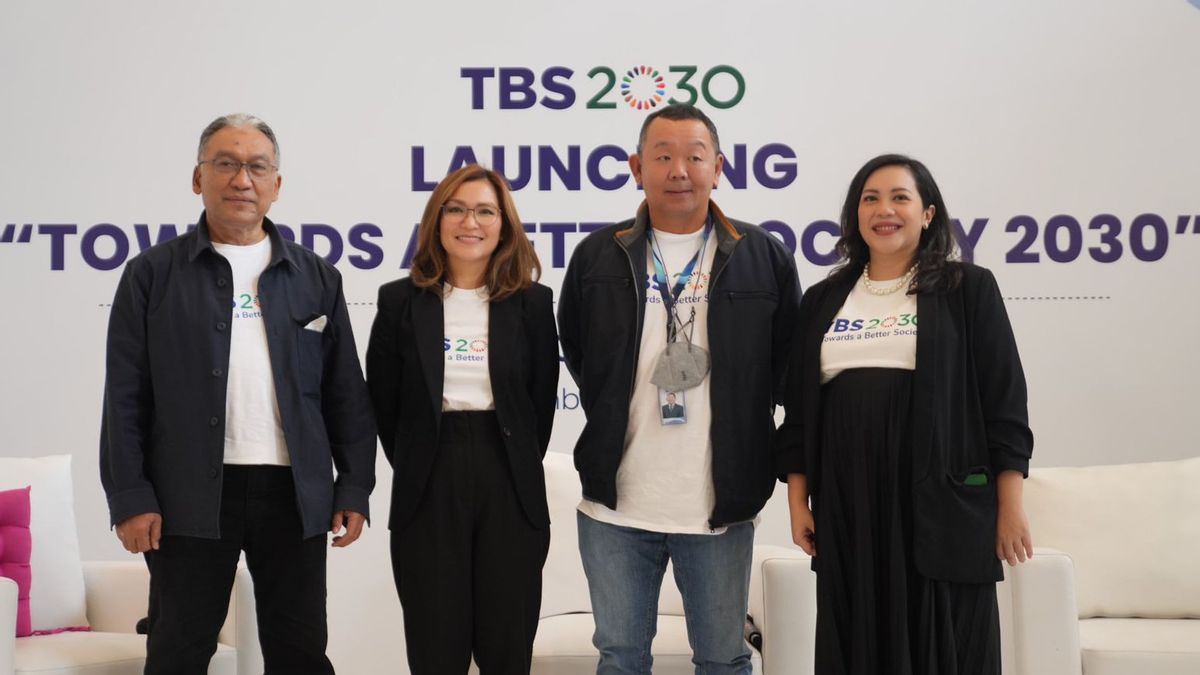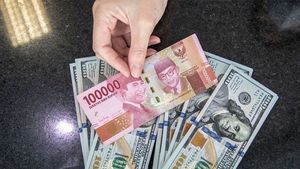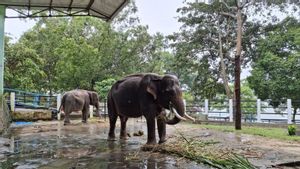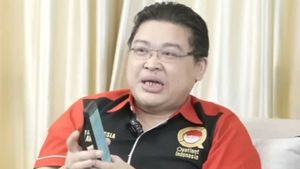JAKARTA - PT TBS Energi Utama Tbk (FFB) is committed to achieving Carbon Neutrality by 2030 while still implementing the concept of Environment, Social, and Governance (ESG).
Deputy Director of TBS Pandu Sjahrir said the commitment was summarized in the TBS2030 program which consisted of 12 goals that became the company's reference and roadmap in running a business, ranging from strategic levels to operations in the field.
Through this commitment, FFB seeks to show that the sustainability factor is directly integrated into the FFB business model and not a separate initiative.
TBS is also committed to bringing sustainability to a higher level, thus integrating respect for the environment, concern for others, and responsible business behavior through The Stretch Goals which are divided into three dimensions, namely Thriving Environment (Lestari Temple), Empowered People (Empowered Society), and Trusted Partners (Trusted Mitra).
"This is an acknowledgment that sustainability has become the company's obligation in this modern era. TBS2030 is a way of FFB to take part in the achievement of Sustainable Development Goals (SDGs) which is a global agenda and the government," said Deputy Director of TBS Pandu Sjahrir at his press conference, Thursday, November 10.
Pandu said that TBS2030 is a clear, measurable, and transparent roadmap for stakeholders to see the company's progress.
He added that the 12 goals that became the reference and roadmap in running the business would help the company achieve Carbon Neutrality and Fair Transition by 2030.
"We don't claim to have all the answers to achieve that goal, but we are trying to continue to improve to be better. TBS 2030 is our way of taking part in global goals and supporting the Indonesian Government's agenda to achieve Net Zero by 2060," he said.
Sustainability, said Pandu, has become a separate obligation for the company. According to him, FFB is no stranger to the concept of sustainability. The transition of the FFB business model proves that sustainability has become DNA for FFB, which is much stronger than creating a number of separate programs in the environmental or social fields.
"In this open and transparent era, there is no business model B2B or B2C, there is only H2H (Human to Human), which means everyone has the right to know whether the company is carrying out its business activities responsibly. What is important is what the company's contribution to the environment, human and governance in it," he explained.
Furthermore, Pandu said that the transition of the FFB business model from start to today was already in the form of coal, electricity, renewable energy, and Electric Vehicle (EV), which is one form of the company moving in a more sustainable direction.
For example, in the electric vehicle sector, TBS has a joint venture company with a GoTo Group called Electrum, which already has more than 250 electric motors in Jakarta, which can already be accessed by the public through the Gojek application, and so far it has covered a distance of more than 4 million kilometers.
"The Electrum motorbike has also recently become the official partner of the shuttle service provider for the B20 and G20 series of events in Bali. We want to bring this environmentally friendly business closer to consumers," he said.
The English, Chinese, Japanese, Arabic, and French versions are automatically generated by the AI. So there may still be inaccuracies in translating, please always see Indonesian as our main language. (system supported by DigitalSiber.id)













